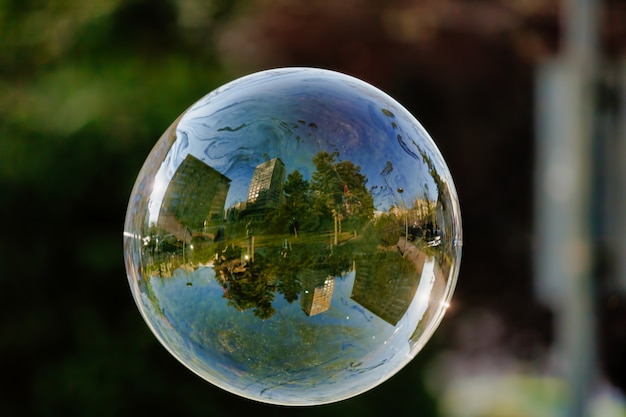
Climate change is becoming a serious threat to human civilization. We’ve seen temperature fluctuations and glacier melting, which are starting to impact our health in many ways. Climate change will lead to new diseases and make existing ones stronger and more resistant to treatment. How these diseases will affect us will depend on our age, economic resources, and where we live.
As a result, there will be imbalances in physical, biological, and ecological factors within communities. We’ll see an increase in respiratory infections and cardiovascular diseases, leading to more health problems.
To protect communities and ensure healthy future generations, we need to understand the threats that lie ahead. Here’s what we need to know about how climate change affects community health.
Smog is a harmful pollutant that irritates the eyes and makes breathing difficult. People who inhale polluted air will strain their lungs, reducing their lung function. This can lead to more cases of asthma and difficulty breathing. Hospitals will face increasing numbers of difficult-to-treat cases, leading to more premature deaths. Factors that contribute to this pollution, like older cars using leaded petrol and ACs emitting CFC gases, are largely man-made.
We need to raise awareness about these issues within communities, and public health workers play a crucial role in this. There’s a growing demand for health workers, which is why many people are choosing careers in the healthcare sector. Those interested can pursue an online Master of Public Health (MPH) to help address these health issues.
Online education is becoming more popular, allowing individuals to balance their current jobs with further studies.
Pollen concentration is expected to increase, possibly extending pollen seasons. People with pollen allergies may suffer more allergic reactions, such as hay fever, which causes sneezing, congestion, and runny noses. They might also develop conjunctivitis, where the eye’s lining gets inflamed due to pollen or other allergens, causing red, watery, and itchy eyes. Asthma attacks requiring hospitalization may become more common, reducing productivity and workdays.
Pollen can also encourage indoor mold growth, worsening respiratory illnesses and stressing the lungs.
Contaminated water poses serious health risks, made worse by climate change due to frequent rains, runoff, and storms. People may suffer from gastrointestinal illnesses like diarrhea and long-term kidney damage. Drinking contaminated water from the same sources can make people sick, and these illnesses are hard to combat.
Climate change also threatens food quality and availability. Extreme temperatures can lower crop yields and encourage weeds and pests. Livestock and fish are also at risk if food production can’t keep pace with demands. This can lead to higher food and water prices and even widespread famine. When needs aren’t met, violence and crime can increase.
The environment also affects our mental health. Fluctuating temperatures make it difficult to adapt, potentially leading to seasonal depression. Some people struggle with extreme temperatures, risking heat stroke or frostbite. Weather changes can restrict movement and lead to isolation, which negatively impacts mental health. Severe mental conditions and increased suicide rates can result from such isolation. During the coronavirus pandemic, for instance, people experienced isolation, risking illness or taking extreme precautions, making them feel like outcasts.
Forests are increasingly at risk, with high chances of wildfires due to drought and high temperatures. Wildfires release harmful gases like carbon monoxide and nitrogen oxide, worsening respiratory and cardiovascular diseases. Inhaling smoke can burn the esophagus lining, seriously affecting health. Damage to the heart and lungs is hard to recover from, potentially limiting physical activities and requiring medical devices like pacemakers.
Climate change is a significant threat to humanity, leading to disease outbreaks, food shortages, rising temperatures, and natural disasters. Humans need specific conditions to thrive, which climate change disrupts, making survival challenging. We face respiratory illnesses, increased allergic reactions, and heart conditions. In severe cases, contaminated food and water can weaken our health and increase the risk of death.